"I Turned My Floral Hobby Into A Thriving Business" – A Grower Shares Secrets For Success
Meet Dee Hall Goodwin, a professional cut flower farmer and dahlia fanatic, who turned her passion for growing and arranging flowers into a successful business. She wants everyone to share the floral joy.
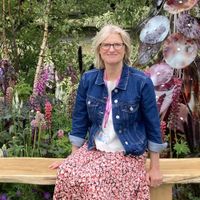
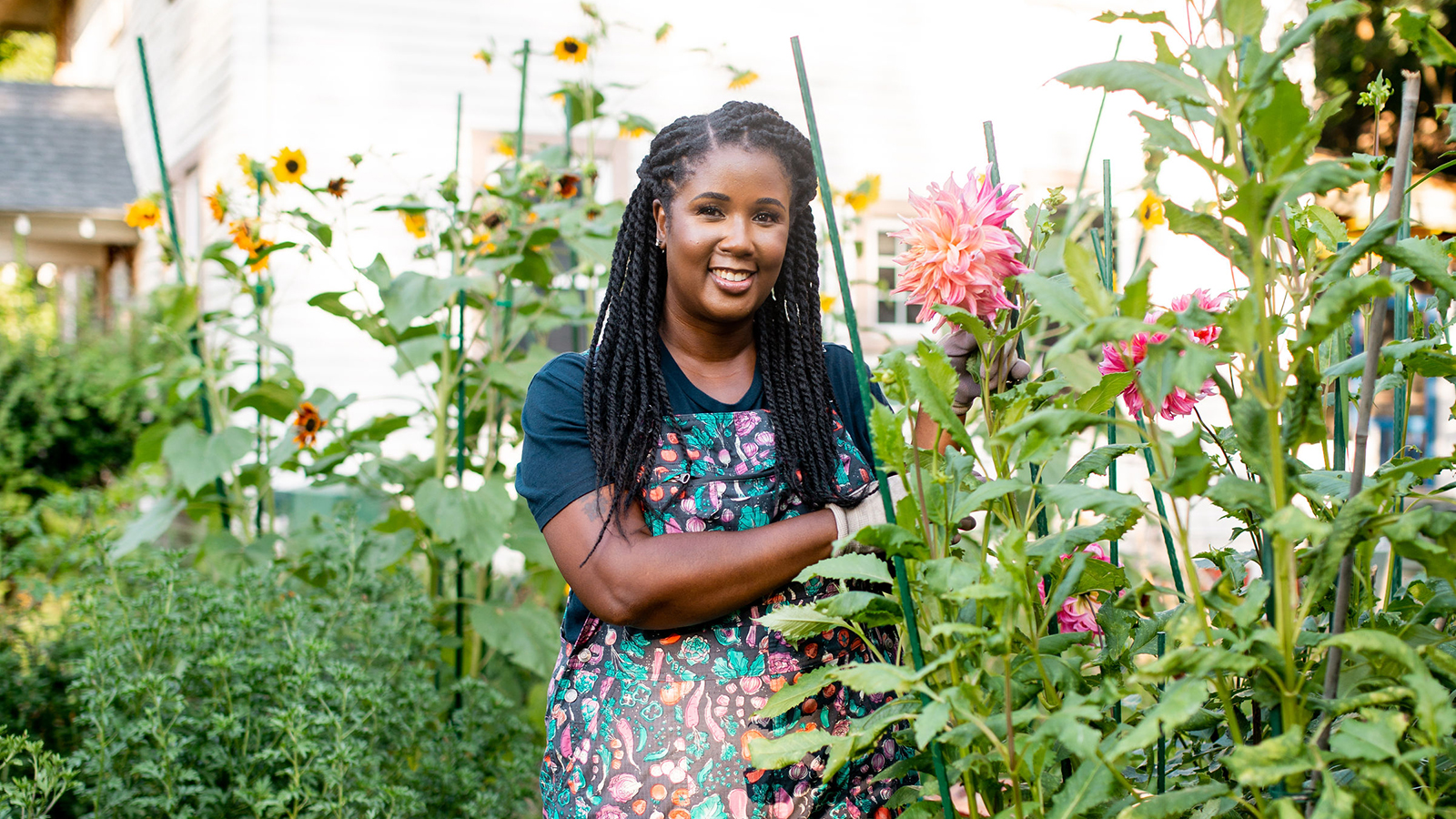
How were your dahlias this year? Mine have been a bit of a mixed bunch (no pun intended!). Most didn’t survive the cold, damp winter, and the ones that did had an all-out battle with slugs and snails. I’ll try again next year, armed with some great expert tips from professional cut flower grower Dee Hall Goodwin, founder of Black Flower Farmers collective and Mermaid City Flowers.
Many gardeners fantasize about growing a cutting flower garden, and Dee made her dream a reality, turning her hobby into a successful business.
Based in the coastal town of Norfolk, Virginia, Dee specializes in growing dahlias, but they are by no means the only crop on her ¾ of an acre of productive land. On her four plots around the city you’ll also find the happiest and healthiest anemones, tulips, ranunculuses, zinnias, celosia, amaranth, globe thistle, peonies, dianthus, garden phlox, statice, sunflowers, and lisianthus, according to the season.
"Plus lots of things people don’t even think of as cut flowers – including herbs like basil, shiso, apple mint, native mountain mint and yarrow, and jewels of Opar (Talinum paniculatum), which have edible leaves," adds Dee.
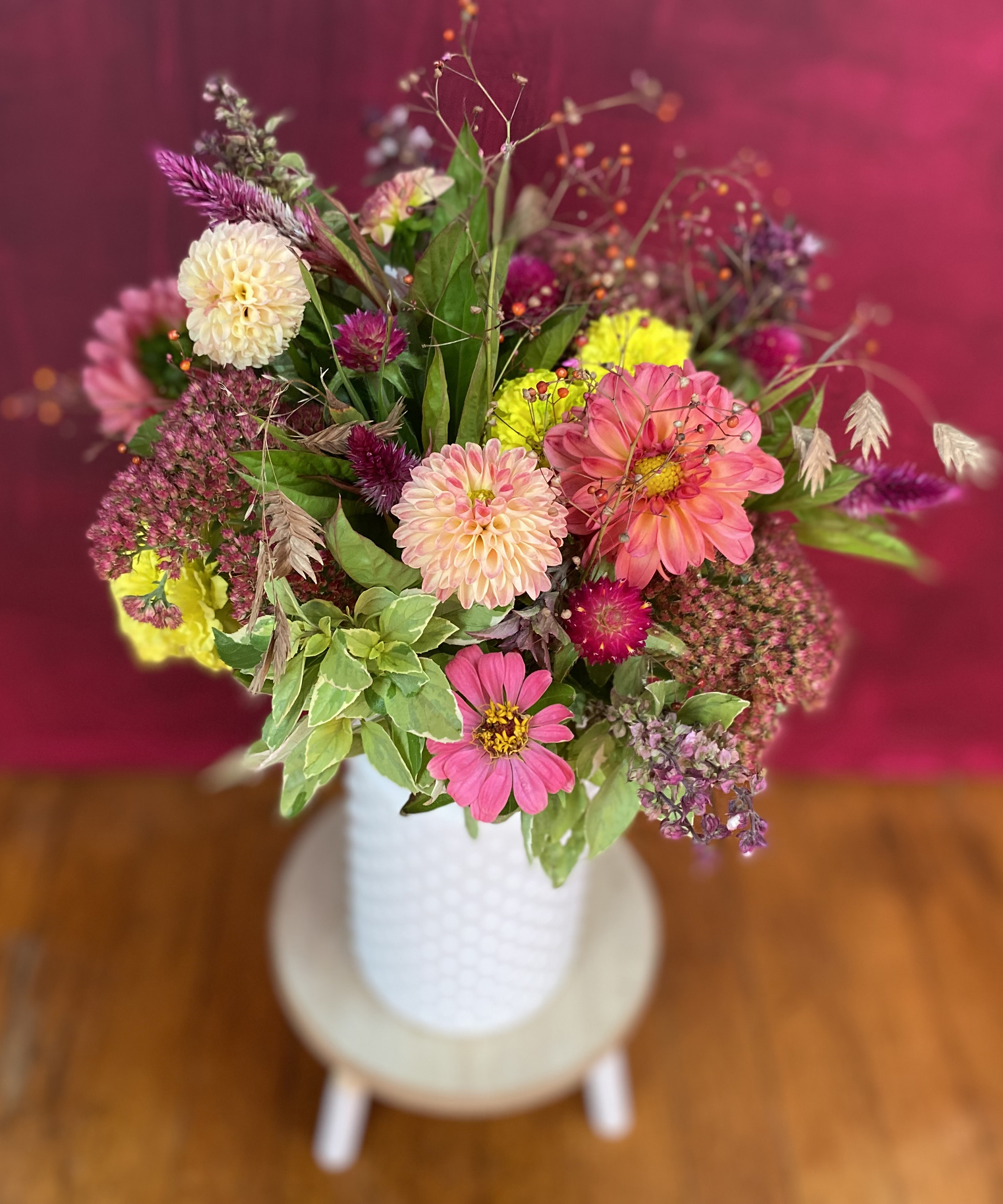
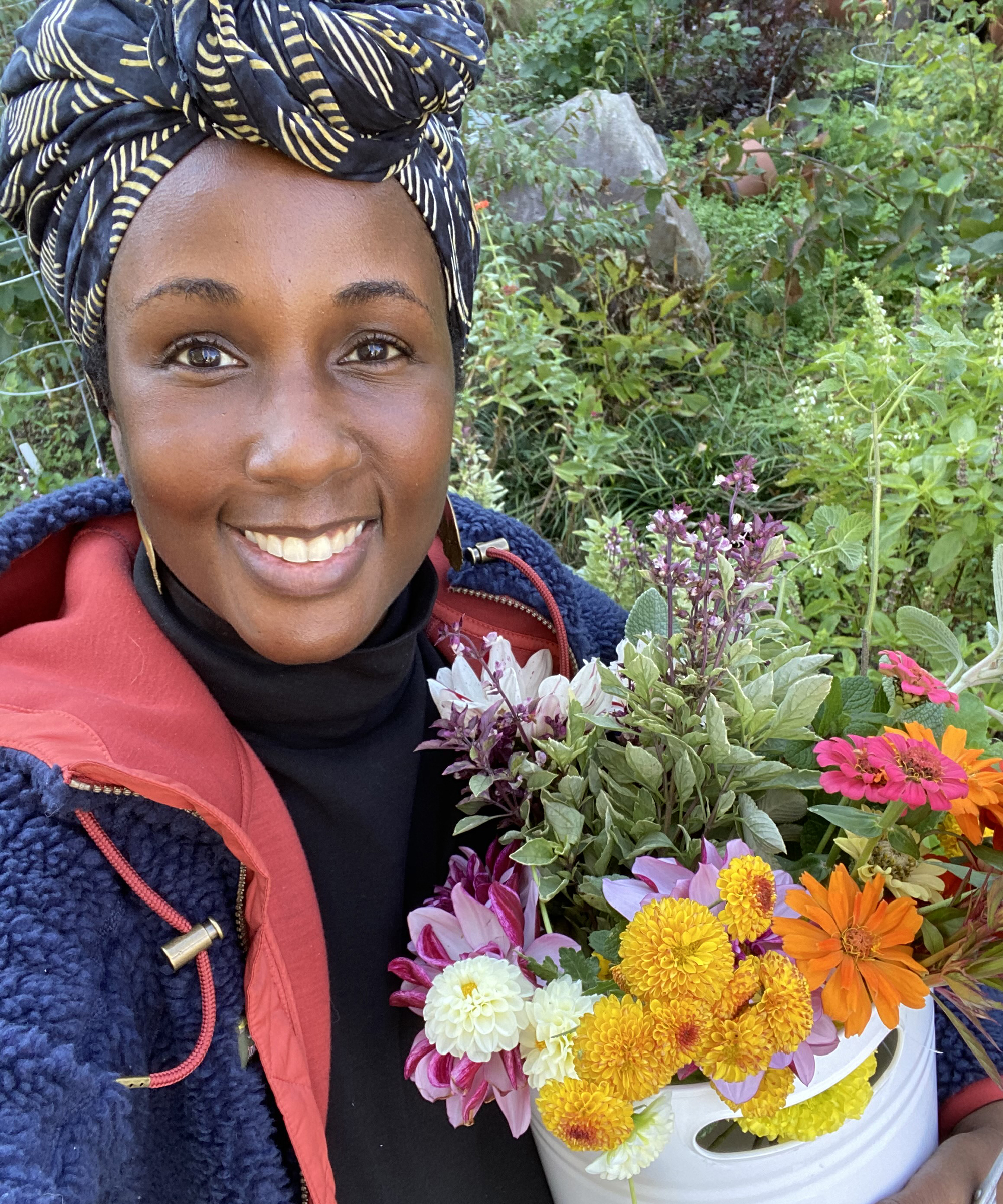
Dee is the founder of Black Flower Farmers collective and Mermaid City Flowers. She specializes in dahlias but also grows a range of other cut flowers, which she uses to craft her stunning floral arrangements.
Dee describes her cut flower farm and flower design business as "a one-woman show" that came into being by chance. "I was looking for somewhere to buy local, sustainably grown flowers for my own wedding and there was nothing out there," she explains.
"I’ve always been a gardener; I grew up growing things. My passion for growing started with my grandmother who was a lay florist and did flowers for events alongside her teaching career. I watched her doing that with no idea that one day I’d come full circle and eventually do the same thing."
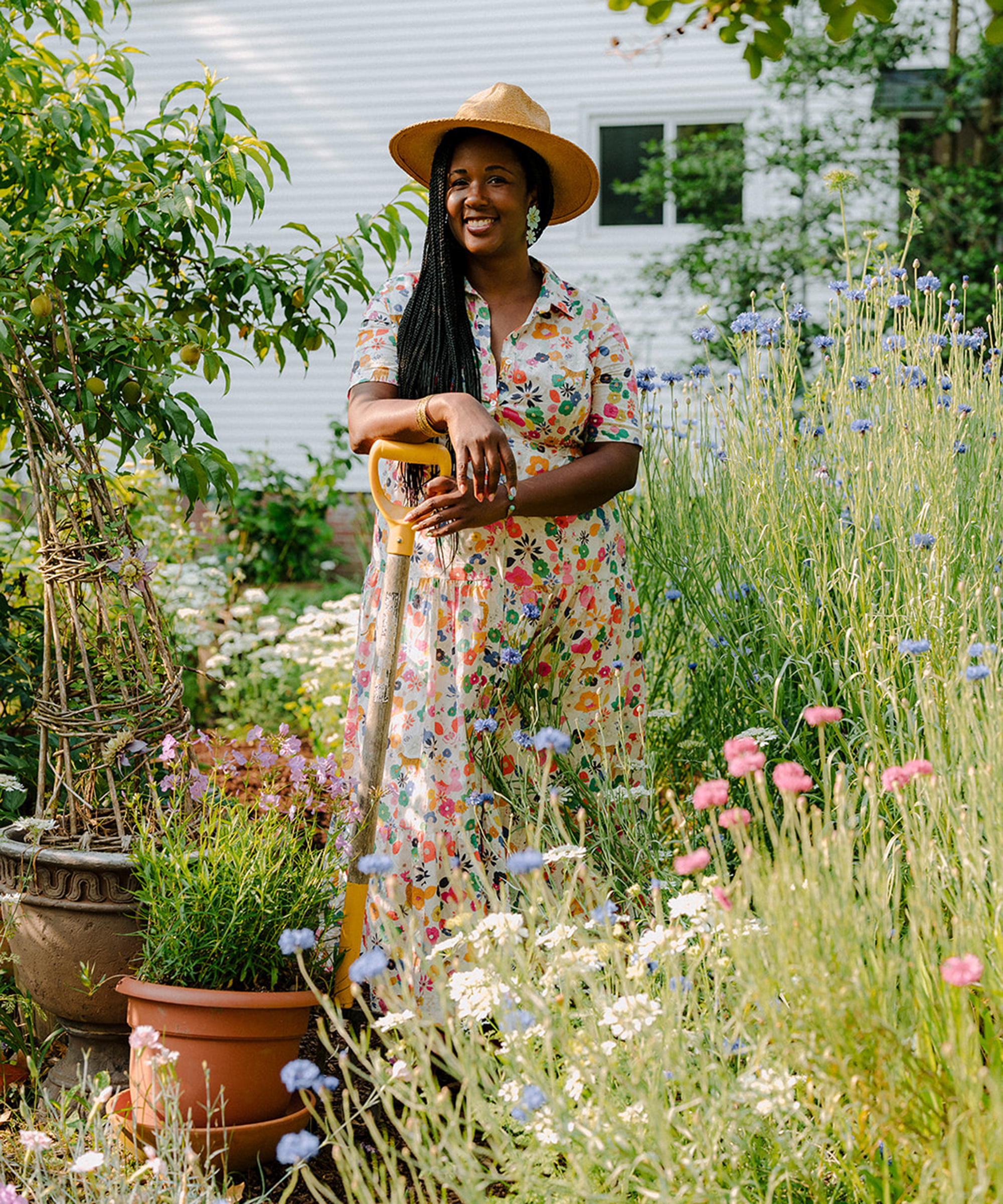
Dee carried on growing her own flowers, and discovered the joy of dahlias, sometimes sharing them and arranging them for family and friends. Before long, it dawned on her that she could supply that gap in the market for sustainable, locally grown flowers, offering floral design for events, too. The seed for her business, Mermaid City Flowers, was planted.
Sign up for the Gardening Know How newsletter today and receive a free copy of our e-book "How to Grow Delicious Tomatoes".
"I just thought, I can scale this up and make this a business, and no one said no, that’s a terrible idea, don’t do it," says Dee. "So in 2020, I did."
She began on a small scale at home, growing on her ¼ acre plot which was mostly grass. "I like to joke that I’m an anti-lawn evangelist. I converted the turf grass into flowers, and I live in a coastal town where basically it’s ground zero for sea level rise and climate change, so it’s always been really important to me to incorporate indigenous plants into what I grow."
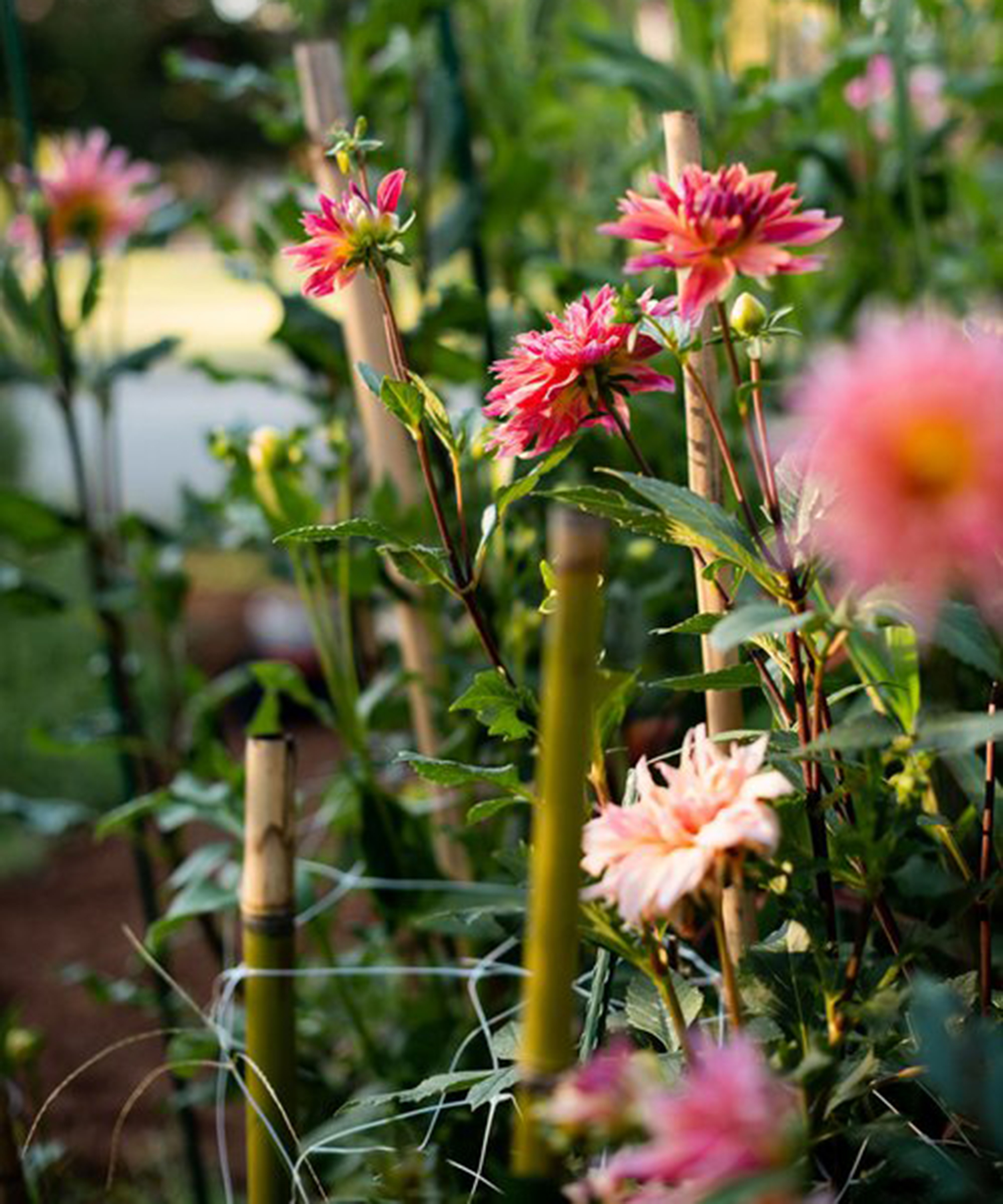
Dee grows native cut flowers, and in doing so they become a teaching tool. "It’s a good opportunity to let people know that these are things that do really well in our particular climate and that they can grow them and use them for cut flowers," says Dee. "So they serve a dual purpose."
Starting out doing the rounds of the local farmers’ markets armed with bucketfuls of her homegrown blooms, and setting up a floral CSA, flower subscriptions, which she still does, Dee progressed onto weddings and events. She now hosts monthly cut flower workshops in the studio she shares with a handful of other creatives. "I also hold specific native floral arranging workshops, which is something that people are very interested in and I want to do more of."
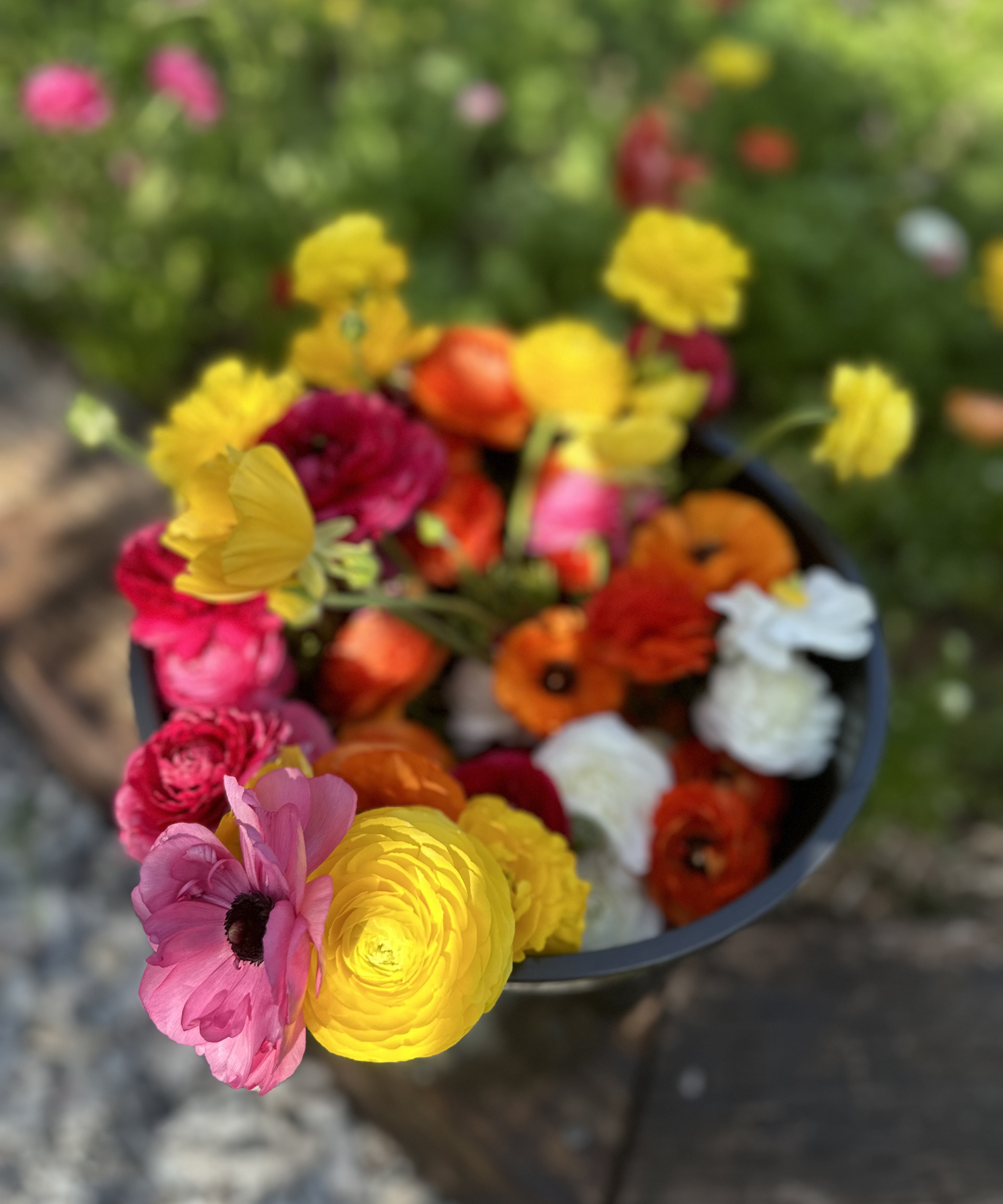
How to Prolong the Life of Cut Flowers
1. Remove the leaves below the water line in a vase, if left they will produce bacteria in the water.
2. Keep cut flowers away from the windows as sunlight will shorten their life.
3. Change the water every couple of days.
4. You don’t need to add bleach, flower food, or sugar to the water – none of these things help. Just put your cut flowers straight into plain water.
In the early days, Dee would ask neighbors for cuttings of their plants but once people started seeing what she was doing in the community they not only offered her cuttings but offered her space to cultivate flowers on their plots. "They said: you want to grow flowers so I don’t have to cut grass? Please do!"
So now Dee’s farm is spread around four different sites in the city, with around ¾ of an acre in total. "I even have a wait list, so if I need to expand I can do," she adds.
Alongside the donated cuttings, Dee propagates her own plants and grows from seed but is trying to focus on growing more perennials which are less labor-intensive. She doesn’t own a greenhouse and raises seeds in a bedroom with grow lights, heat mats, and humidity domes. Simple methods, and the results are simply beautiful.

Somehow, in amongst all that flower growing, arranging, and educating, Dee scraped together enough time and energy to found two informal collectives of flower growers. The first is a local group, Tidewater Flower Collective. "There are 25 growers in the group, collaborating and freelancing for each other’s events, purchase-sharing to benefit from economies of scale, and sharing ideas about what we’re interested in growing and buying," says Dee.
There’s an important educational side to the group, too, explains Dee. ‘We’re spreading the message that you can get locally grown flowers. A lot of people still don’t realize they can buy locally and most cut flowers sold in America are grown overseas.
"With that there are health costs, as they're not great for the workers who have to deal with pesticides that are often used on these farms, and the environmental costs of cultivating flowers that might not be suited to the areas growing them, plus the obvious transport and refrigeration costs with imported flowers."
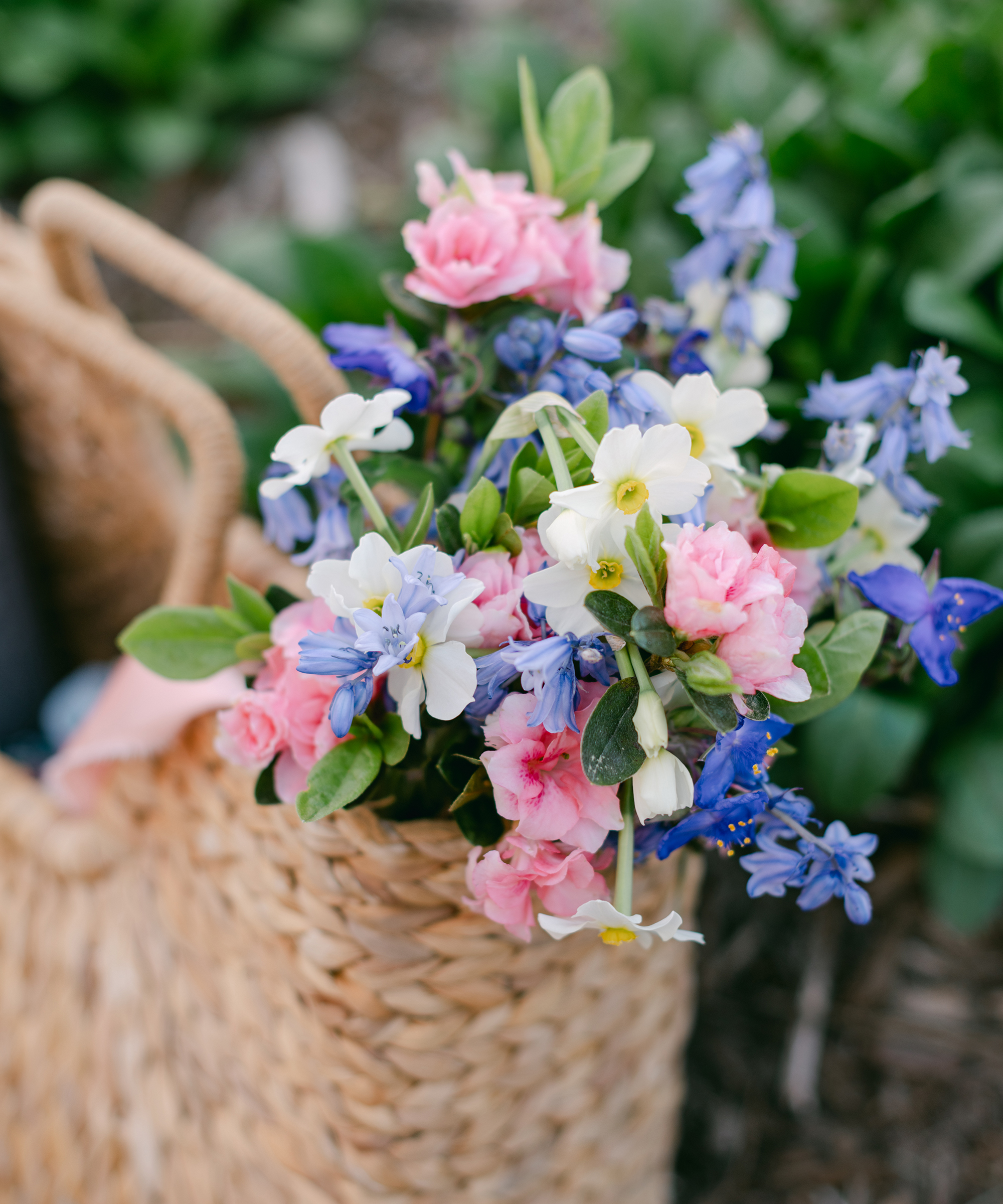
Dee also founded a group called Black Flower Farmers, with around 40 members worldwide, including the UK, the US, Canada, and South Africa, all with different expertise. "Flower farmers are a really small percentage of farmers overall, around 5%, and black flower farmers are an even tinier portion of that," says Dee.
"There are things that are affecting growers of color specifically and historically in the United States and across the world, so I wanted a space where people could share their concerns, their questions, their comments, or even look for advice. It was more about being inclusive, and supportive than being exclusive. There’s so much knowledge in the group, and people are keen to share it to support people who are new to the group and the industry," says Dee.
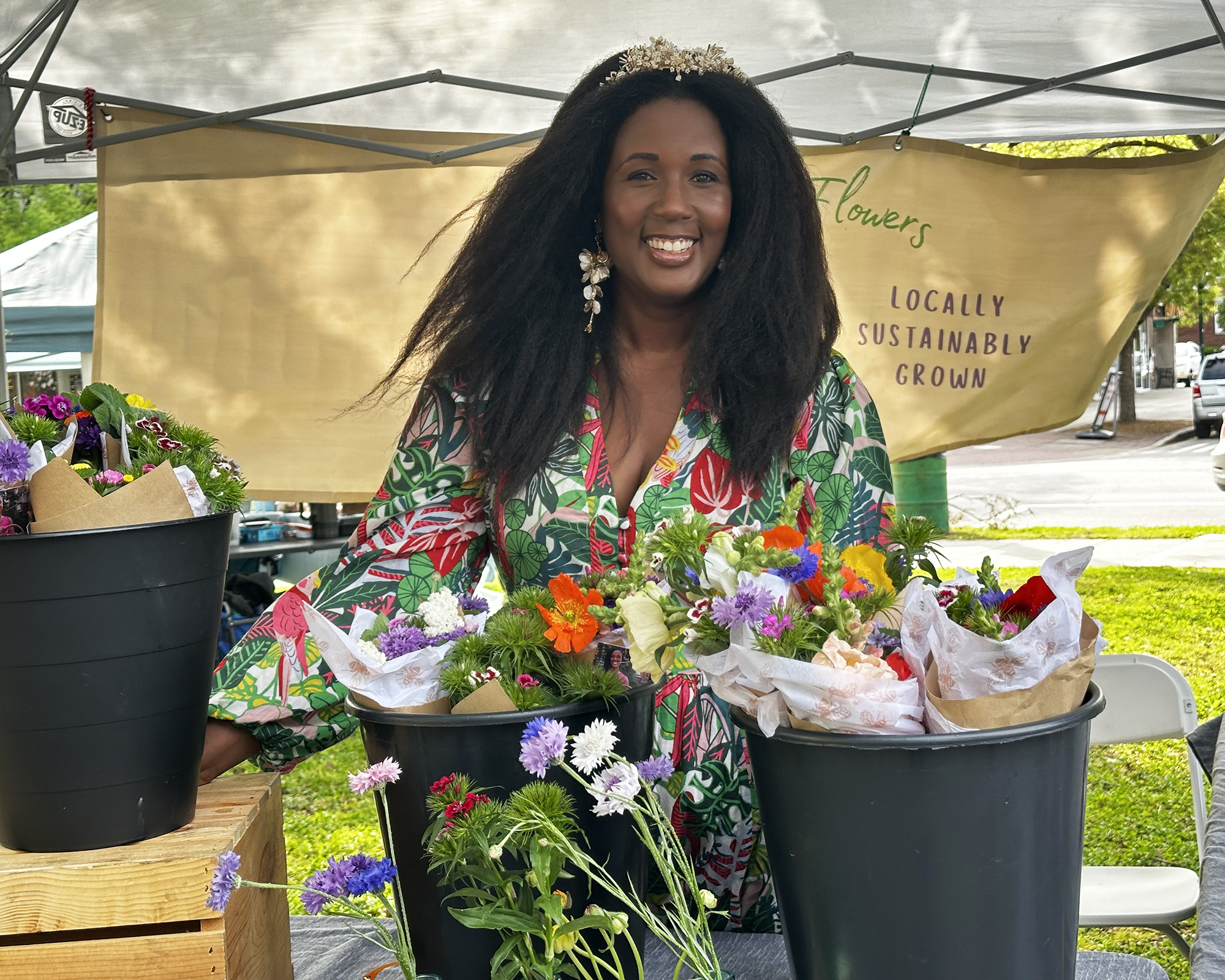
For her own part, Dee continues to try growing different flowers. "I love dahlias, I always have, and I’m growing some new varieties this year that I’m really loving. I don’t grow dinner-plate dahlias, as they’re difficult to use unless you’re doing some really large-scale arrangement," she says.
"This year I’m growing Creme de Cognac, Wizard of Oz, and Café au Lait. The irony for a cut flower business is that dahlias aren't long-lasting cut flowers. But I always have ranunculus and zinnias too. My favorite flower is whatever I’m looking at in that moment. It’s ever-changing and a constant experiment, like all gardening is."
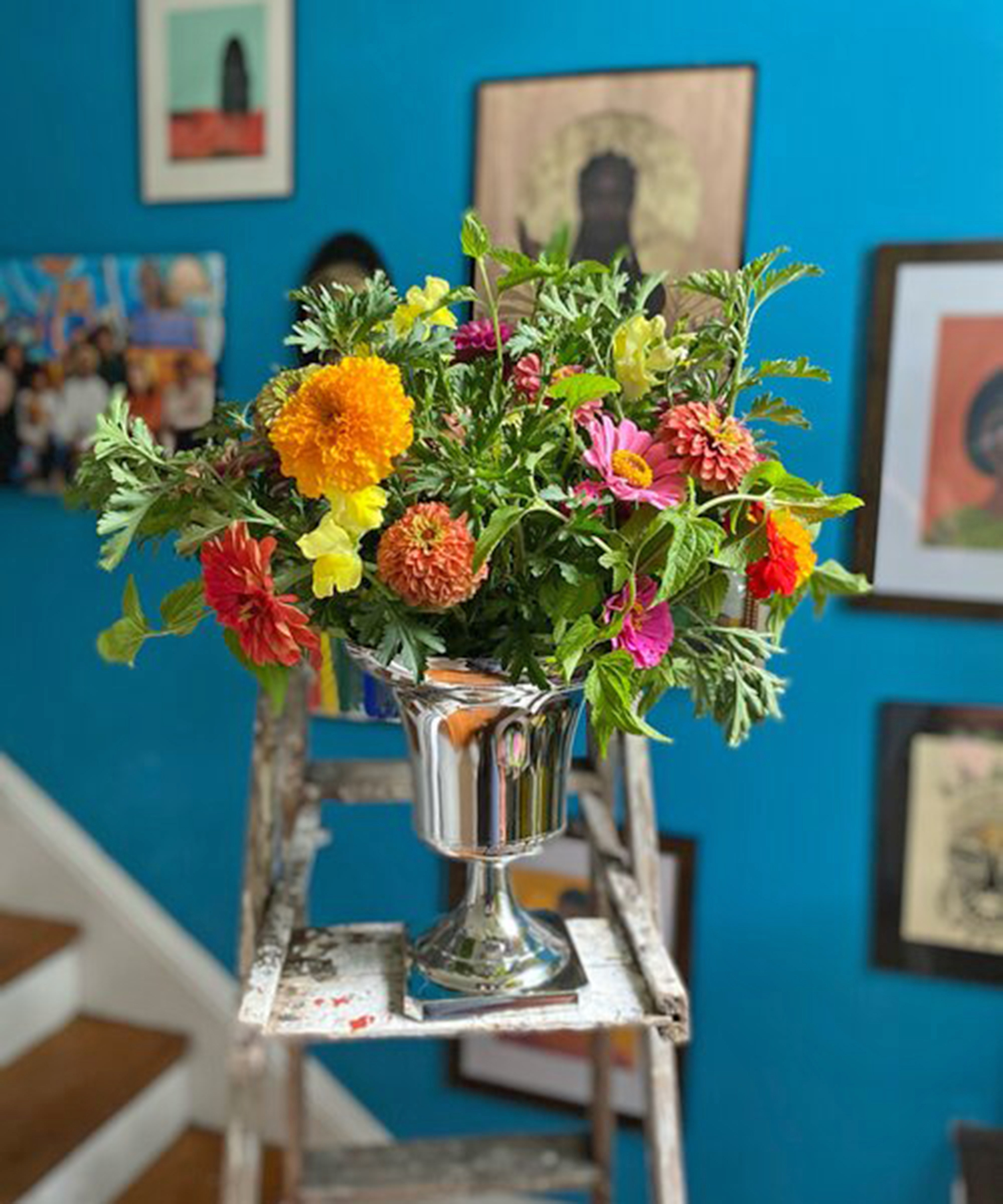
Dee's Tips for Flower-Growing Newbies
What advice would Dee offer to people who are new to growing cut flowers and experimenting for the first time?
- Get started. We feel we have to do all the research and we have to have the perfect conditions. Plants want to grow, those seeds want to grow, just put them in the ground.
- Look at what grows well in your area and start with those.
- Manage the soil. Soil health is one of the most important things. If you get that right you won’t need to do much watering or feeding, and the flowers will almost look after themselves. Most of what I grow is in raised beds in just 6 inches of good soil
- Another reason why focusing on native plants is more successful is because they’re adapted to the growing conditions in this area and won’t need special consideration.
- I only water if things look severely stressed. I use plants as canopies to shade other plants and use interplanting.
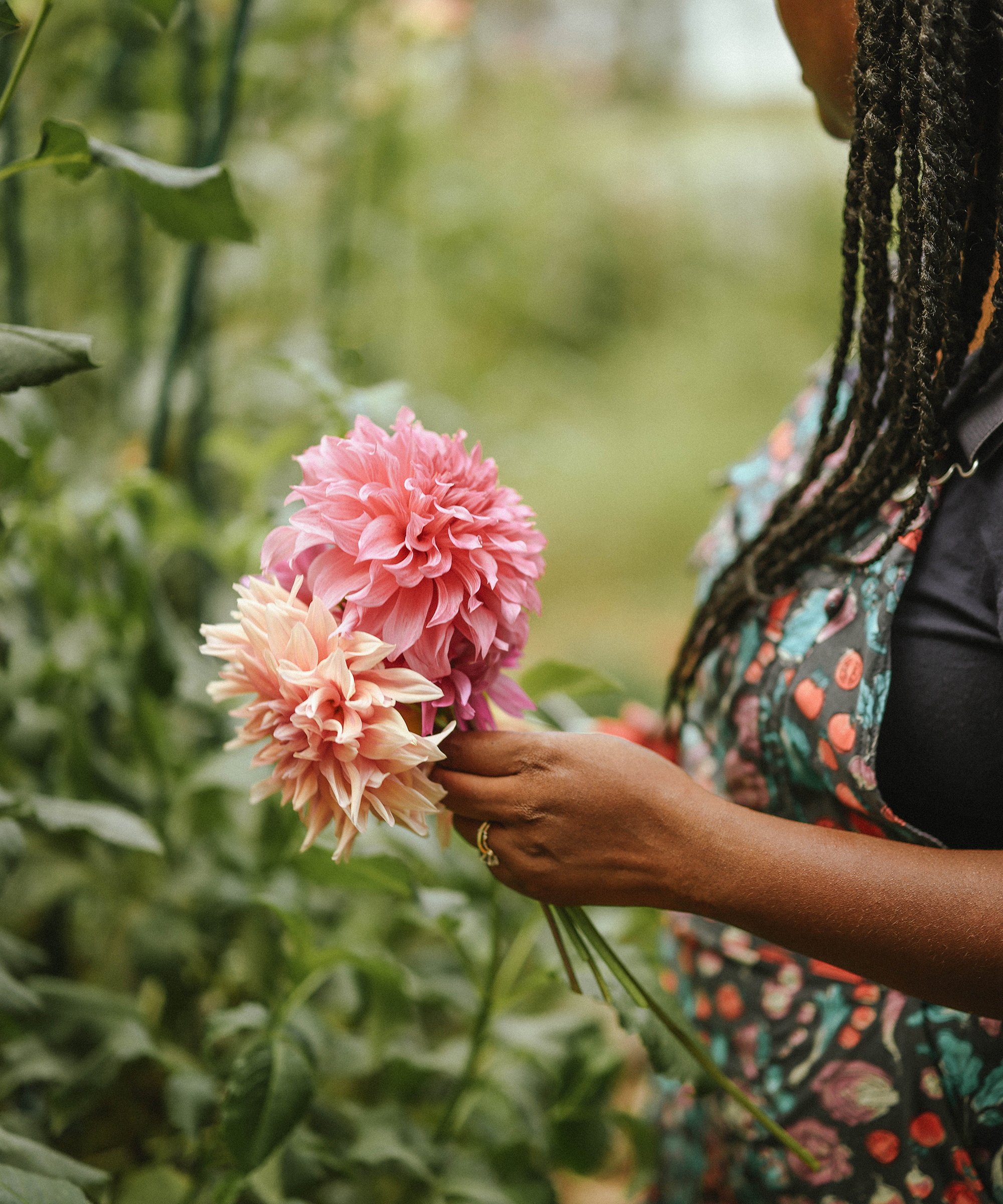
- I use strawberries as a ground cover between my cut flower plants to shade the roots, to keep the soil moist, and to suppress weeds.
- The easiest flower to grow is the humble zinnia – they come in a ton of different varieties and can be succession planted and are cut and come again. Here we have a pretty long season – I plant them from August through to September and they’ll be growing through October or November. They are susceptible to powdery mildew, but once they’re cut and in a vase that doesn’t matter.
- Basil makes an amazing cut flower. It often self-seeds. You can succession plant it. You can take a stem and it will take root in water. Alternatively, basil seeds are inexpensive and can be grown in a small pot on a windowsill
- Johnnie’s seeds are good for professional growers and home gardeners.
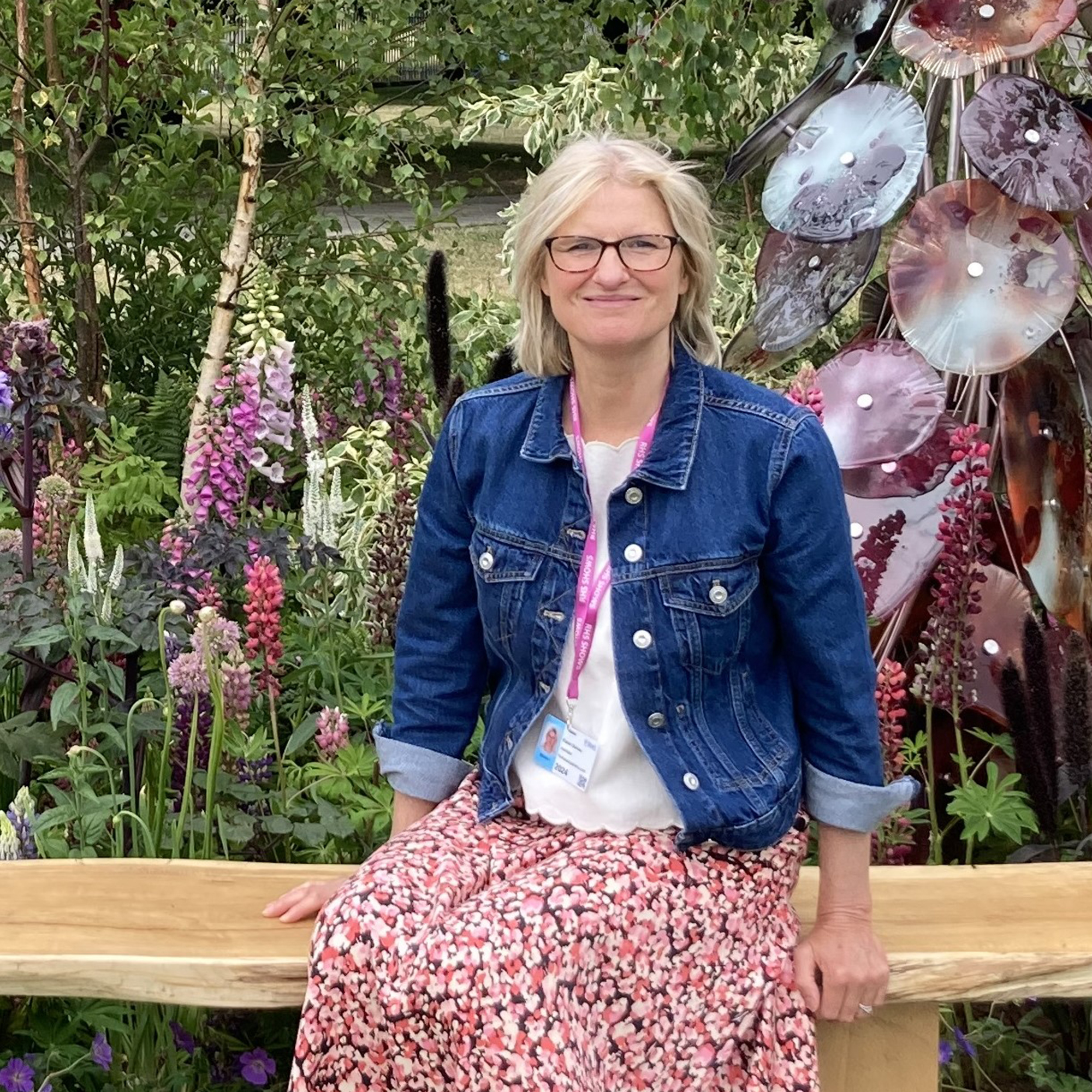
Karen is the houses editor for Homes & Gardens online and contributing editor for Period Living magazine. She has nearly 30 years' experience of writing and editing features on interiors and gardens. Roses of all types and colors are a passion for Karen, along with clematis and some of the heavily scented heritage sweet pea varieties.